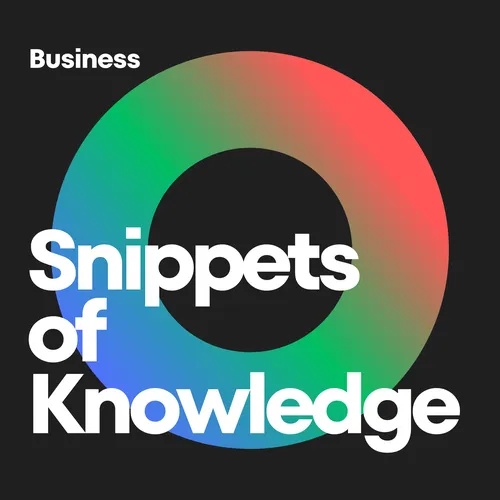Mind Matters Unveiled: Decoding Cognitive Mysteries
- Author
- Knol.ai
- Published
- Sat 03 Feb 2024
- Episode Link
- https://knol.ai/thinking-fast-and-slow-by-daniel-kahneman/
Join us in this thought-provoking episode of 'Snippets of Knowledge' as we delve into the intricacies of the human mind through Daniel Kahneman's groundbreaking book, 'Thinking, Fast and Slow'. Unravel the dance between System 1 and System 2, explore the world of biases and heuristics, and discover how these mental patterns shape our decisions. From the quirks of overconfidence to the profound implications of Prospect Theory and framing effects, this episode is a captivating journey through the cognitive landscapes that influence our daily choices.
Show Notes:
Introduction:
- Welcome to 'Snippets of Knowledge,' where we explore intriguing ideas from impactful books.
- Today's focus: 'Thinking, Fast and Slow' by Daniel Kahneman.
- Journey into the hidden intricacies of the human mind.
System 1 and System 2:
- Definition and characteristics of System 1 and System 2.
- Examples of System 1 in action and the importance of System 2's analytical approach.
- Understanding the interplay between these two systems for better decision-making.
Heuristics and Biases:
- Exploration of mental shortcuts (heuristics) and their role in decision-making.
- Examples of biases like confirmation bias and anchoring bias.
- How awareness of these biases can lead to more rational decisions.
Overconfidence and Planning Fallacy:
- Unpacking the concept of overconfidence through relatable scenarios.
- Discussion on the planning fallacy and its impact on decision-making.
- Encouragement to challenge confidence with skepticism for more informed choices.
Prospect Theory and Loss Aversion:
- Introduction to Prospect Theory and its departure from traditional economic thinking.
- Exploration of loss aversion and its influence on decision-making.
- Real-world examples illustrating the asymmetry between gains and losses.
Framing Effects:
- Understanding how framing shapes decisions and judgments.
- Examples of framing in various contexts, including social problems and decision-making scenarios.
- The impact of framing on personal perspectives and broader implications.
Conclusion:
- Reflection on the key insights from Kahneman's observations.
- Empowerment through awareness of thought systems, biases, and decision-making pitfalls.
- Appreciation for the transformative potential of understanding our cognitive processes.
Hosted on Acast. See acast.com/privacy for more information.
